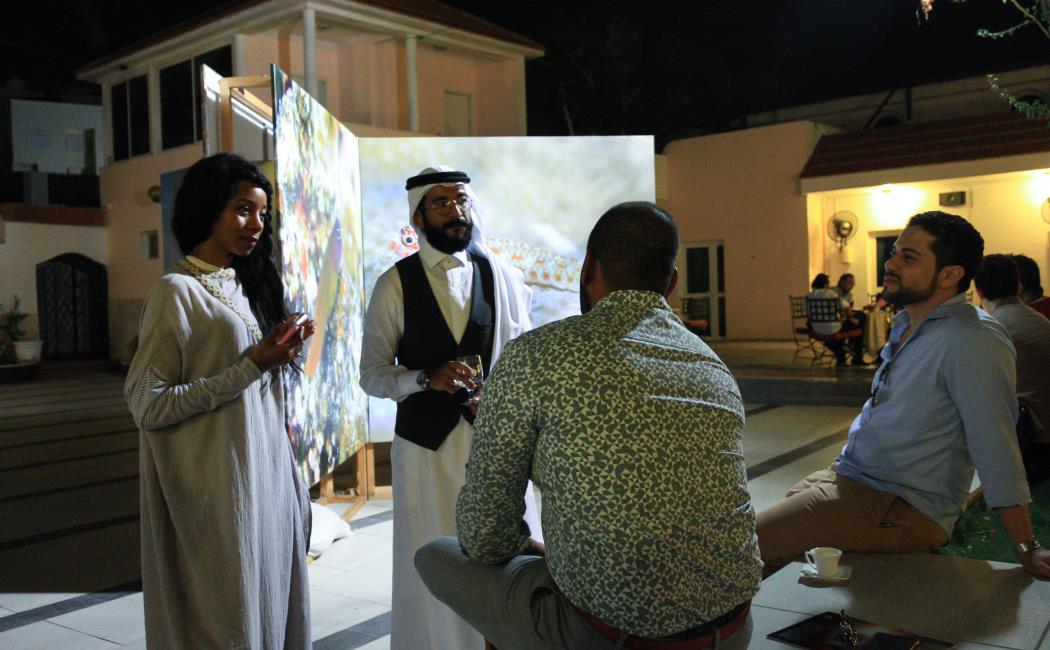
Italian Red Sea Research Event in Jeddah
27 May, 2018
The presentation of their research was complemented by an immersive multimedia exhibition combining underwater film and photography focusing on the biodiversity found within the Red Sea. Entitled “water.colours: a Red Sea biodiversity exhibition” organized and curated by KAUST ARTmosphere curator, Solkem N’Gangbet.
The event, introduced by the Consul General of Italy, Elisabetta Martini, and titled, “Future environmental and biological scenarios between the Mediterranean and the Red Sea.” emphasized that the Mediterranean Sea and the Red Sea present fundamental environmental and biological differences, but they also have similarities.
“It is about the future of the environment of the Mediterranean on the basis of what is happening in the Red Sea, it highlights the similarities between the seas and the environmental changes and issues they face as a result of climate change”, said Consul Martini.
The opening of the Suez Canal and the rise of the Mediterranean temperature are bringing tropical species typical of the Red Sea into the Mediterranean Sea. Hence the Red Sea is considered a research subject to comprehend future environmental and biological scenarios in the Mediterranean, in the light of climate change.
  | Professor Daffonchio presented insights into deep sea anoxic brine lakes, considered to be among the most extreme aquatic environments on Earth. “The organismal diversity and metabolic potential of the microbial assemblages in the brine pools are exciting models to disentangle the symbiotic and syntrophic cooperation between microorganisms to sustain element cycles in the deep-sea desert. The brine lakes offer exciting models for the understanding of the ecological relationships among microbes in extreme environments.” said Professor Daffonchio. |
The conference also featured presentations by Giorgio Bavestrello, Professor of Zoology at the University of Genova discussing global warming and structural changes in benthic communities in the Mediterranean and Dr Folco Giomi, Researcher in Ecology at the University of Padova discussing anthropogenic driven climate warming as a global threat for ocean systems.
The conference was sponsored by the Italian Consulate General in the framework of the initiative “Italy, Culture and the Mediterranean” and the KAUST Red Sea Research Centre, with the aim of connecting Italian scientific community in KAUST and Italian universities, in addition to communicating research findings to new audiences.